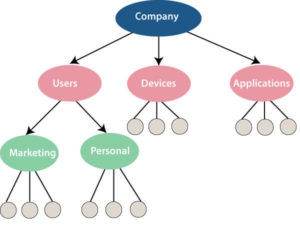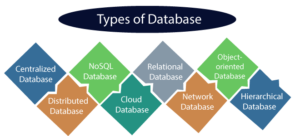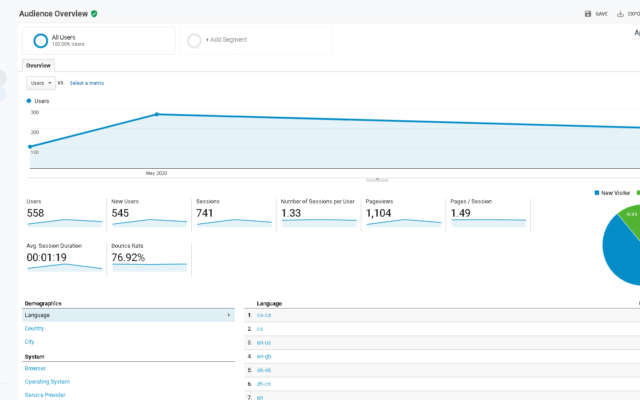
What Are Databases Used For?
Successful entrepreneurs have always relied on some form of database to help with decision-making and planning. Data collection used to involve manual methods like face-to-face customer interviews or surveys by phone, mail, or in person. Regardless of the method, most data had to be collected manually. Businesses needed this to better understand their customers and the market as a whole. Due to financial and time costs, data collection became very inefficient for many companies.
Today, it is easy to collect data that helps you better understand your customers and the market. Almost every modern business platform or tool provides many ways to acquire data quickly and efficiently.
Nowadays, data is becoming more and more accurate, but it is still not 100% precise. However, it is the most accurate we can have today. Data can tell us many things, from our clients' needs to our personal work performance. These factors are why data is a priority for all managers and entrepreneurs.
So, how are databases connected to business? How can databases help us? What are databases used for outside of business?

Example of Database Structure
Data Helps You Make Better Decisions
All small entrepreneurs produce data. Every business with a website and social media presence that accepts electronic payments of any kind has data on customers, user experiences, website visits, and more. All this data is full of potential if we learn to access and use it to improve the business.
How do you make decisions? Every person makes decisions based on experience. In the digital world, we call experiences data. Based on evaluated data, a manager creates strategies and procedures. Subsequently, the manager checks the data to see if their measures were correct, and the cycle repeats.
How to effectively replenish stock? Ordering based on your personal predictions is not correct. Here again, data helps, where we see the development of specific products on the market. Based on data, we can accurately predict the demand for a product.
Every company that exists probably has its databases to help make better decisions. If you think you do not have enough data to improve your decisions, you are probably wrong. We often see companies that do not understand how to process data or lack access to the right tools for data visualization.
Even small and medium-sized enterprises can gain equally valuable insights as larger organizations when data is used correctly. Companies can use marketing data to:
- Find new customers
- Increase customer return
- Improve customer support
- Enhance marketing
- Track social media interactions
- Predict trends
Data helps managers decide where to take their companies.
Data Helps You Solve Problems
How do you know what you did well after a successful sales month? Or after a failed marketing campaign? What went wrong or was not as successful? Trying to find the cause without relevant data is always quite blind and thus inaccurate.
Monitoring and checking data from business processes helps you determine what you are doing well and what needs improvement. Simply monitoring data and results is not enough. After evaluating the results, there should always be self-reflection and subsequent adjustments.
Sports teams are a great example; they collect data to improve their team. If coaches do not collect data on player performance, how do they know what players are doing well and where they are progressing?
Data Helps You Understand Customers and the Market
How do you know who your real customers are without data? How do you know if customers like your products or if your marketing methods are effective without data? How do you know how much money you are making or spending without data? Data is the key to understanding your customers and the market.
The more information you have about your customers, the more opportunities you have to sell.
Data helps you find out which of your products are currently trending in the market. Not knowing this information can cause you to miss out on significant profits. It is very important to know who your real buyers are.
Today, data-driven business is the new standard. If you are not using data to lead your business into a better future, you will become a company of the past!
What Are Databases Used For Outside of Business?
1. Healthcare
Every clinic, hospital, and healthcare system stores data about their patients. Thanks to data, we know where our healthcare is progressing. We know which group is at risk in which case, and much more. The main reason hospitals store records is our health. Knowing a patient's history allows us to better predict the future. These data are protected by HIPAA standards.
2. Cloud Storage
Today, everyone stores photos in cloud storage. There are many options, among the most popular are: Google Drive, OneDrive, and others. These databases are safer and faster than local storage.
Data synchronization from mobile to computer is used regularly. The ability to view anything on your mobile from your PC and vice versa anytime and anywhere is becoming standard today.

3. Finance
From your bank to the stock market, databases connect the entire financial market. Every transaction, every payment, every expense is monitored by banks. These databases are gigantic. From the data produced in the financial and economic sectors, we can see various graphs and visualizations of our economy in the media.
4. State Organizations
States around the world collect data on all processes within the state, such as law compliance, crime, business, taxes, etc. Ordinary people will never access this data. The data is stored in special software.
5. Social Networks
Every social network collects data about its users. This data is used for targeted advertising based on your interests and needs. These algorithms are also behind friend recommendations. Every social network wants users to spend as much time as possible. Therefore, using data, it generates posts that are relevant to you and does not show you those it deems irrelevant. These companies usually use well-known types of databases such as MySQL
6. E-shops
All companies that sell products online use some form of database. These databases are segmented by price, types, and popularity. E-shops can use tools to recommend additional products, one of the most popular being WooCommerce.
This data falls under PCI Compliance.
7. Sports
In every sport, we see statistics generated from reactive databases. These databases contain data from wins/losses to the age of the athlete to their history. Teams use this data for team analysis and strategy preparation.
8. Weather
Predicting the weather has always been difficult. Thanks to data, we have accurate situation models and can confidently predict the weather weeks in advance. This data is then stored in databases connected to our computers and mobiles. From this data, we see the weather forecast.
9. Online TV
All online TVs like Seznam or Netflix store movies and series in databases. These databases are then sorted for us as viewers by genre, length, or rating. Using reactive databases, online TVs can connect our profile and preferences with the movie database. This results in smart movie recommendations that we all know.
The performance and volume of movie databases are indeed impressive and require specialized software, one of which is called Cassandra.
10. Online Games
Online games have been a challenge for programmers for years. In games, it is necessary for the client to communicate with the server instantly. Every second counts! The problem arises when players are far apart, hundreds of kilometers from the server. In this case, players experience increased latency, also known as PING.




